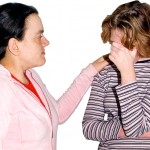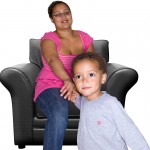Stress associated with being the parent of a child with learning disabilities is well documented. Mencap’s Breaking Point campaign has highlighted this very clearly. Their survey of families found more than 9 out of 10 family carers reported high levels of stress with over half of family carers either having given up, or considering giving [read the full story…]
Challenges in respecting autonomy in end-of-life care of people with learning disabilities

Autonomy is defined as the freedom to determine one’s own actions or behaviour. It is a value at the heart of health and social care support and those supporting people with learning disabilities are constantly striving to maintain and indeed increase the autonomy of those they provide help to. The authors of this Netherlands based [read the full story…]
Dementia through the eyes of a carer: What would you want for your relative?

Josephine Neale summarises a recent review of qualitative evidence that finds carers’ views are mixed and lie on a spectrum of acceptance of their relative as actively dying with dementia.
[read the full story...]Challenging Behaviour Foundation launches new information sheets

In February this year, we posted about new summary information sheets produced by the challenging behaviour foundation. This month sees the launch of a new series of three information sheets which look at the causes of challenging behaviour, and explain how to make effective plans to reduce it. The information sheets are designed to provide [read the full story…]
Specialist short breaks services found to help maintain children in families, but only if key conditions are met

Short breaks offer an opportunity for the person supported to be away from home and for family carers the opportunity to recharge depleted batteries. Earlier this year, we reported on the publication of Mencap’s survey of families which suggested that 8 out of 10 families surveyed reported they had reached breaking point, reporting high levels [read the full story…]
Needs of carers and supporters must be acknowledged to ensure good support to bereaved people with learning disabilities

In recent years, a number of studies have begun to explore bereavement and grief in people with learning disabilities. Hollins and Esterhuyzen (1997) for example in the late 1990s reported the results of a matched control group study into the reaction of people with learning disabilities to bereavement, which found highly significant differences significant differences [read the full story…]
Carers of people with Down syndrome and dementia need access to information, review processes and futures planning

People with Down syndrome are more likely to develop dementia than those without and indeed this is more likely to occur at an earlier age, where clinical symptoms can occur when people are in their late 40s or early 50s. There is also some evidence that there are some differences in clinical symptoms in people [read the full story…]
Female family caregivers found to lack knowledge of need for breast and cervical screening for women with learning disabilities

Studies have shown that women with learning disabilities are less likely than those without disabilities to have access to cervical and breast cancer screening services as set out in the relevant clinical guidelines. The team at Improving Health and Lives, the learning disabilities public health observatory (LDPHO) reported that reasonable adjustments were not being made [read the full story…]
Family carers still at breaking point says Mencap report

Short breaks offer a way for people with disabilities and their family carers to take a break from each other. For the person supported, they offer an opportunity to be away from home and for family carers an opportunity to recharge depleted batteries. In 2003, Mencap surveyed seventy six families from across England and Northern [read the full story…]
Older family carers look to find support for offspring in their own homes

A few years ago, the older family carers initiative, run by the Foundation for People with Learning Disabilities published a series of reports and some excellent guidelines on providing support to help inform not only practitioners, but commissioners and of course older family carers themselves of their rights and the kind of support they could might [read the full story…]